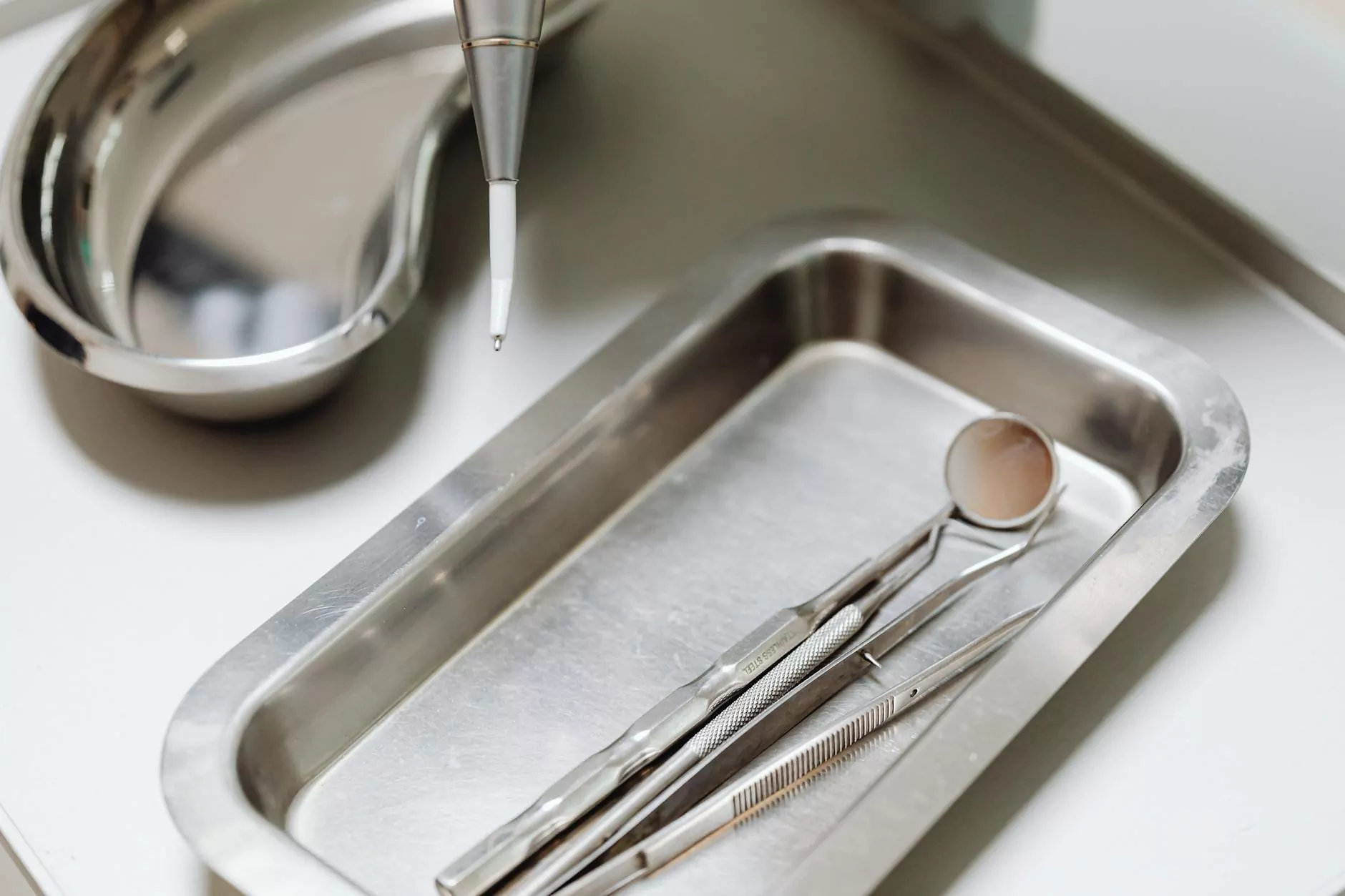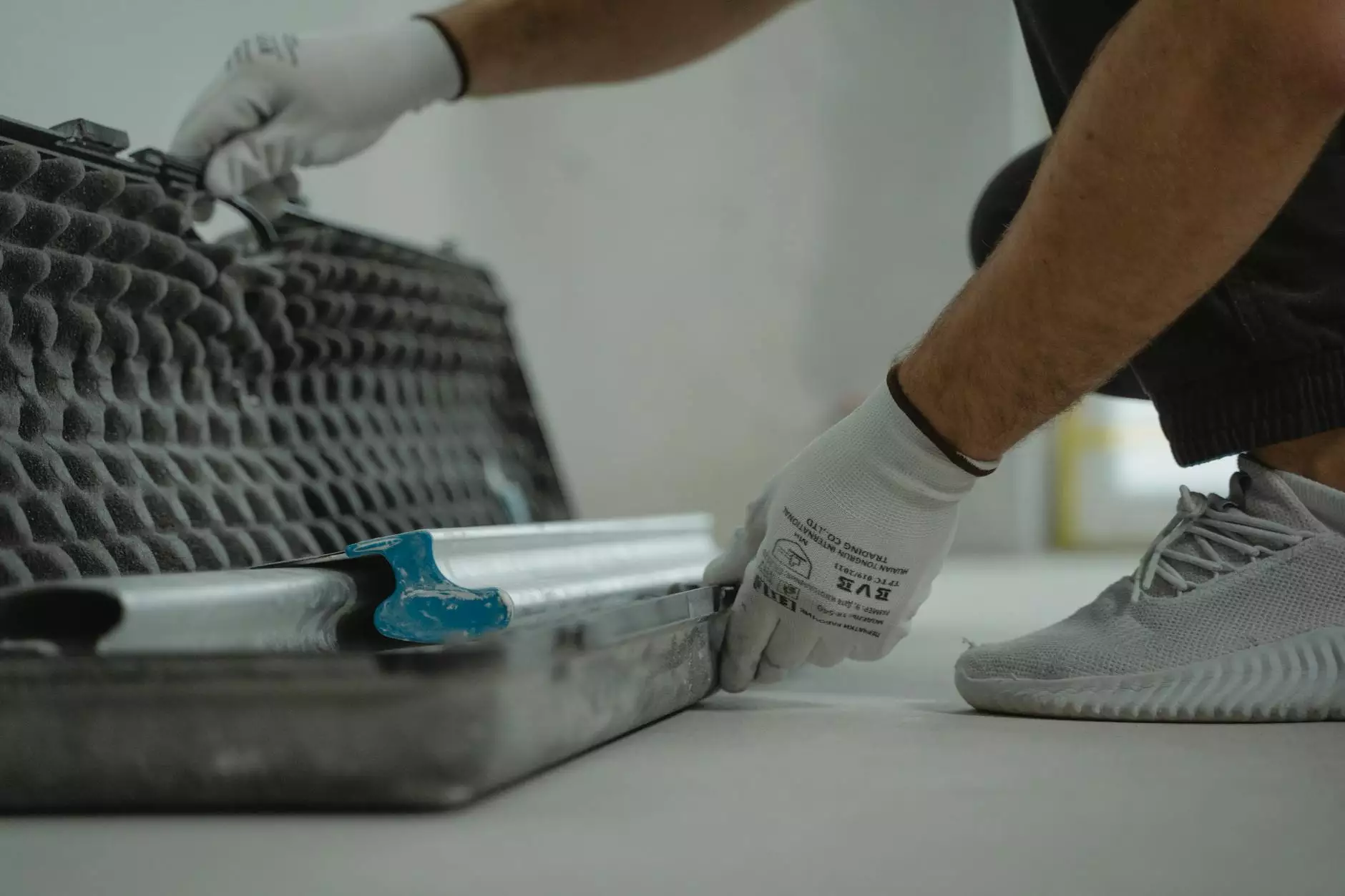Revolutionizing Health Care: The Role of Medical Instruments Manufacturers

Understanding the Medical Instruments Landscape
In today's fast-evolving healthcare sector, medical instruments manufacturers play a pivotal role in enhancing patient care and improving clinical outcomes. These manufacturers are responsible for developing a wide range of medical devices that are essential for diagnosis, treatment, and monitoring of health conditions.
The global healthcare market has witnessed tremendous growth, driven by technological advancements and an increasing demand for quality healthcare solutions. With this growth comes the crucial need for reliable medical instruments that cater to various medical needs.
Why Choose Quality Over Quantity? The Importance of Medical Instruments
Quality is a paramount concern when it comes to medical instruments. Not only do they need to meet stringent regulatory standards, but they also must ensure reliability and effectiveness. Here are some reasons why quality medical instruments should be prioritized:
- Patient Safety: High-quality instruments reduce the risk of errors and complications during medical procedures.
- Regulatory Compliance: Adhering to local and international standards is crucial for manufacturers to avoid legal issues.
- Cost-Effectiveness: Investing in quality instruments can lead to long-term savings by minimizing replacements and repairs.
- Enhanced Efficiency: Well-manufactured instruments often feature advanced technology, aiding healthcare professionals in providing timely care.
Types of Medical Instruments Manufactured Globally
The range of medical instruments manufactured today is vast, with different types catering to specific medical fields. Here are several essential categories:
- Diagnostic Instruments: These include tools like stethoscopes, otoscopes, and ultrasound machines that help in diagnosing health conditions.
- Therapeutic Instruments: Devices such as infusion pumps and surgical instruments that are used for treatment purposes.
- Monitoring Instruments: Equipment like ECG monitors and blood pressure cuffs that are vital for ongoing patient care.
- Laboratory Instruments: Tools used in laboratories for various analyses and tests, including centrifuges and microscopes.
Innovation at the Forefront: Advanced Technologies in Medical Instruments
The field of medical instruments manufacturing is a hub of innovation. Here are some key technological advancements that are reshaping the industry:
1. Digital Integration
Many manufacturers are now incorporating digital technologies into their instruments. This includes features such as smart diagnostics and telemetry systems, which improve both the accuracy of health assessments and the efficiency of data collection.
2. Minimally Invasive Surgery Tools
With the growing demand for less invasive surgical options, manufacturers are producing sophisticated tools designed for minimally invasive procedures. These instruments allow for quicker patient recovery times and reduced scarring.
3. 3D Printing Technology
3D printing has transformed the manufacturing process, allowing for the creation of customized medical devices tailored to the specific needs of individual patients. This technology also helps in significantly reducing waste.
Key Considerations When Choosing a Medical Instruments Manufacturer
When selecting a medical instruments manufacturer, several factors should be taken into account to ensure you partner with a reliable source:
- Industry Reputation: Research the manufacturer's history and customer reviews.
- Quality Assurance Programs: Ensure they have rigorous quality checks in place to maintain standards.
- Certifications: Look for relevant certifications (like CE and ISO) that indicate compliance with health regulations.
- Customer Service: A manufacturer with outstanding customer support is invaluable, especially in urgent situations.
The Future of Medical Instruments Manufacturing
The future of medical instruments manufacturers is bright, characterized by ongoing trends that promise to enhance the healthcare sector substantially:
1. Increased Emphasis on Sustainability
As environmental concerns rise, manufacturers are shifting towards sustainable practices. This includes using eco-friendly materials and reducing waste during production.
2. Telehealth Integration
Telehealth has gained significant traction, and manufacturers are now developing instruments designed specifically for remote monitoring and virtual consultations.
3. Enhanced Data Capturing
The integration of AI and big data analytics allows manufacturers to create instruments that can capture and analyze patient data in real-time, leading to personalized medicine.
Compliance and Regulatory Landscape for Medical Instruments
Understanding the regulatory landscape is crucial for medical instruments manufacturers. Compliance with medical device regulations set by authorities such as the FDA in the U.S. or the EMA in Europe is mandatory. This involves:
- Conducting proper testing and validation of devices.
- Submitting documentation for classification and approval.
- Maintaining post-market surveillance to monitor device performance and safety.
Conclusion: The Vital Role of Medical Instruments Manufacturers
In conclusion, medical instruments manufacturers are the backbone of the healthcare industry, providing essential tools that enhance patient care and improve overall health outcomes. By continuously innovating and adhering to strict quality standards, these manufacturers are transforming healthcare into a more effective and efficient sector.
As we look forward to the future, the collaboration between healthcare providers and manufacturers will be integral in navigating the challenges of the evolving medical landscape. For more information on leading manufacturers and their offerings, visit New Med Instruments.









